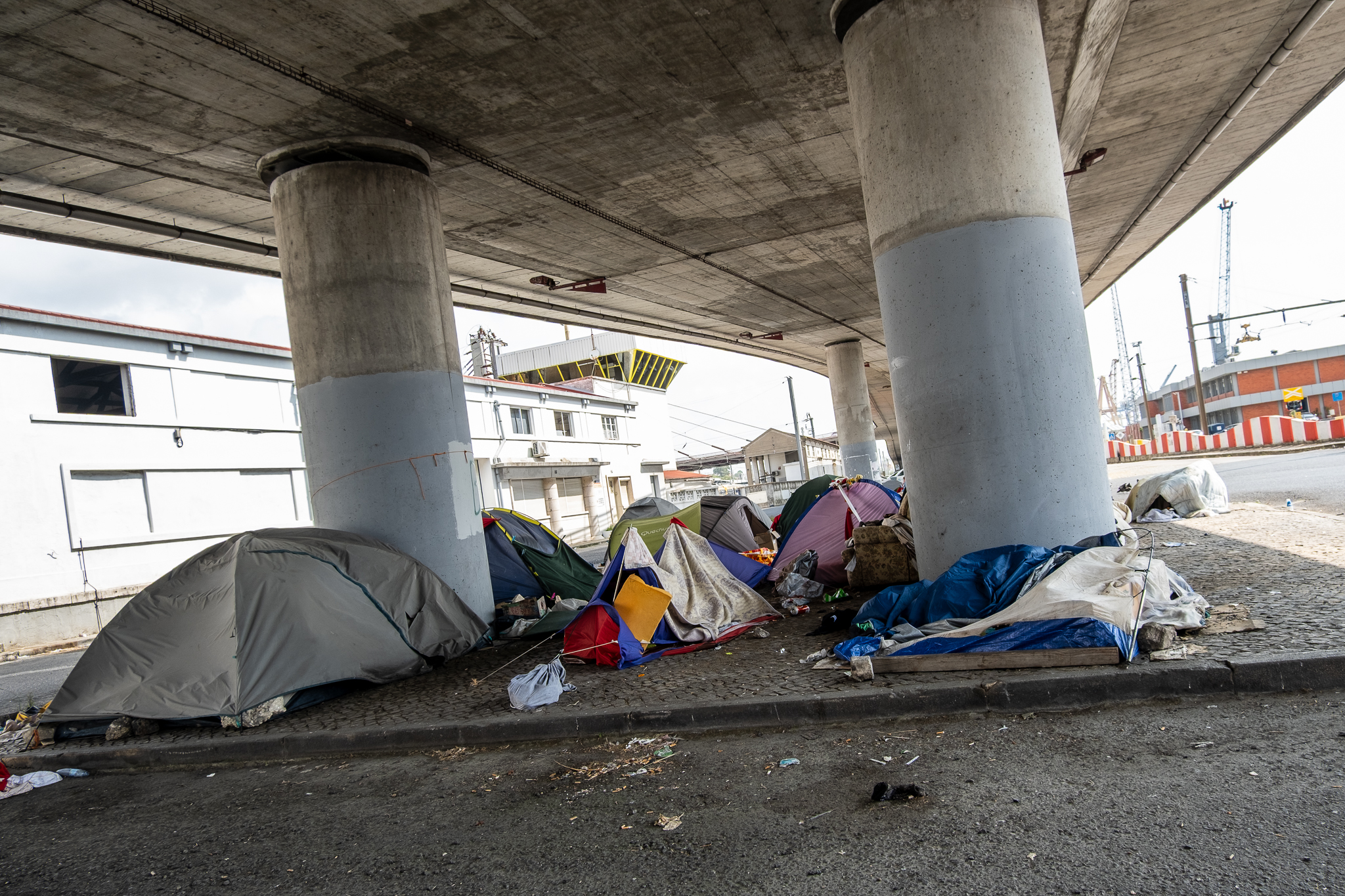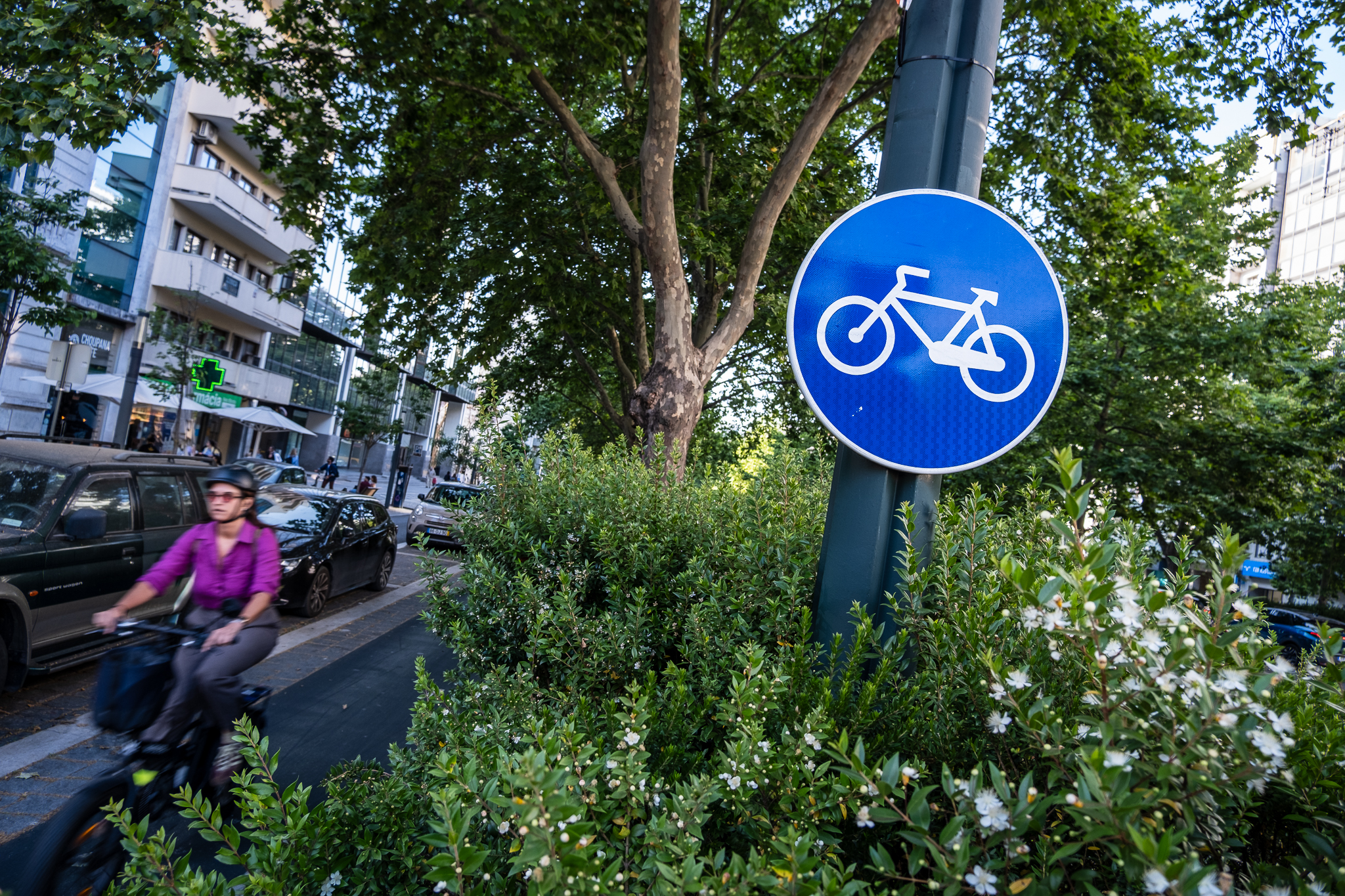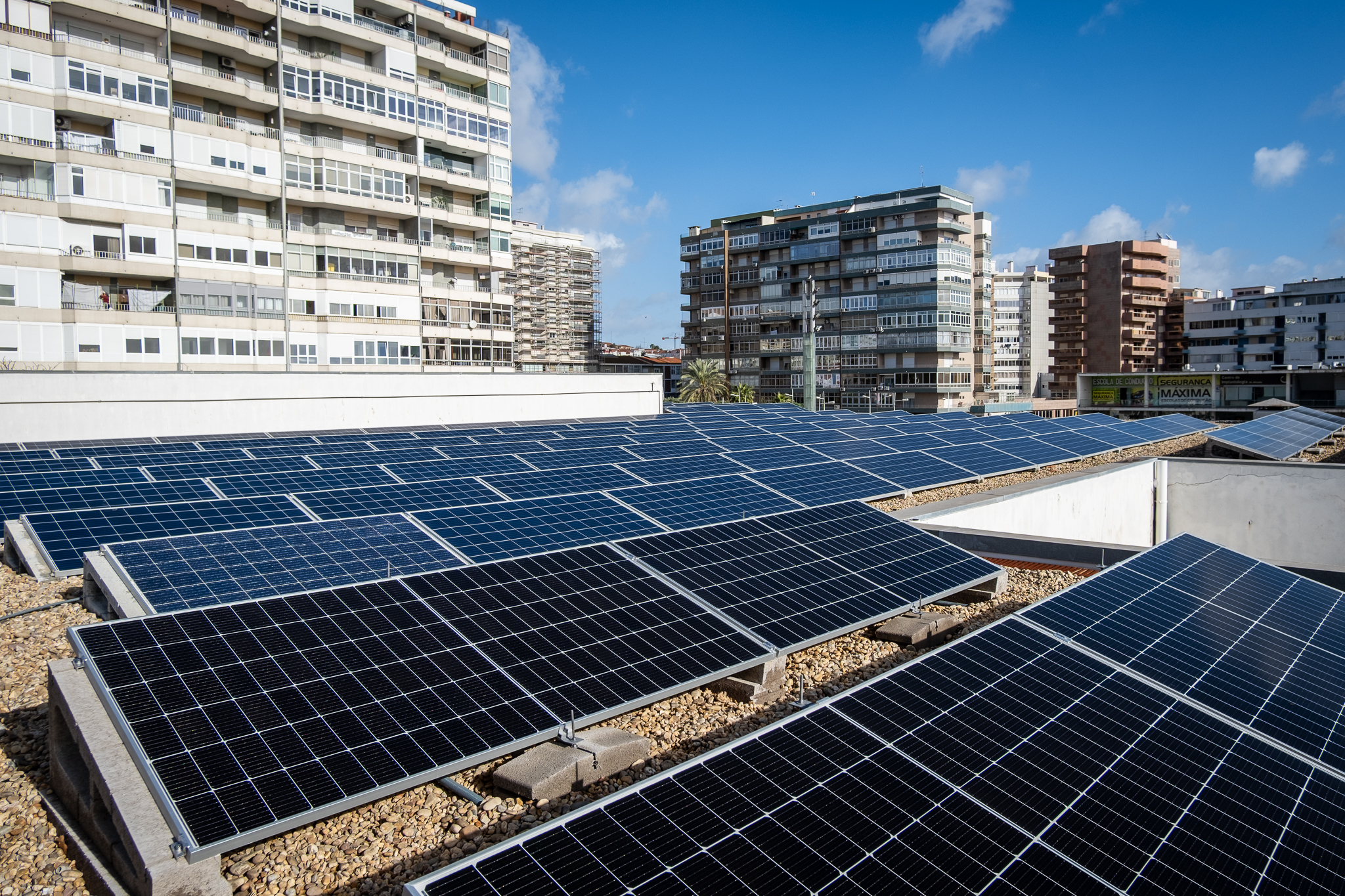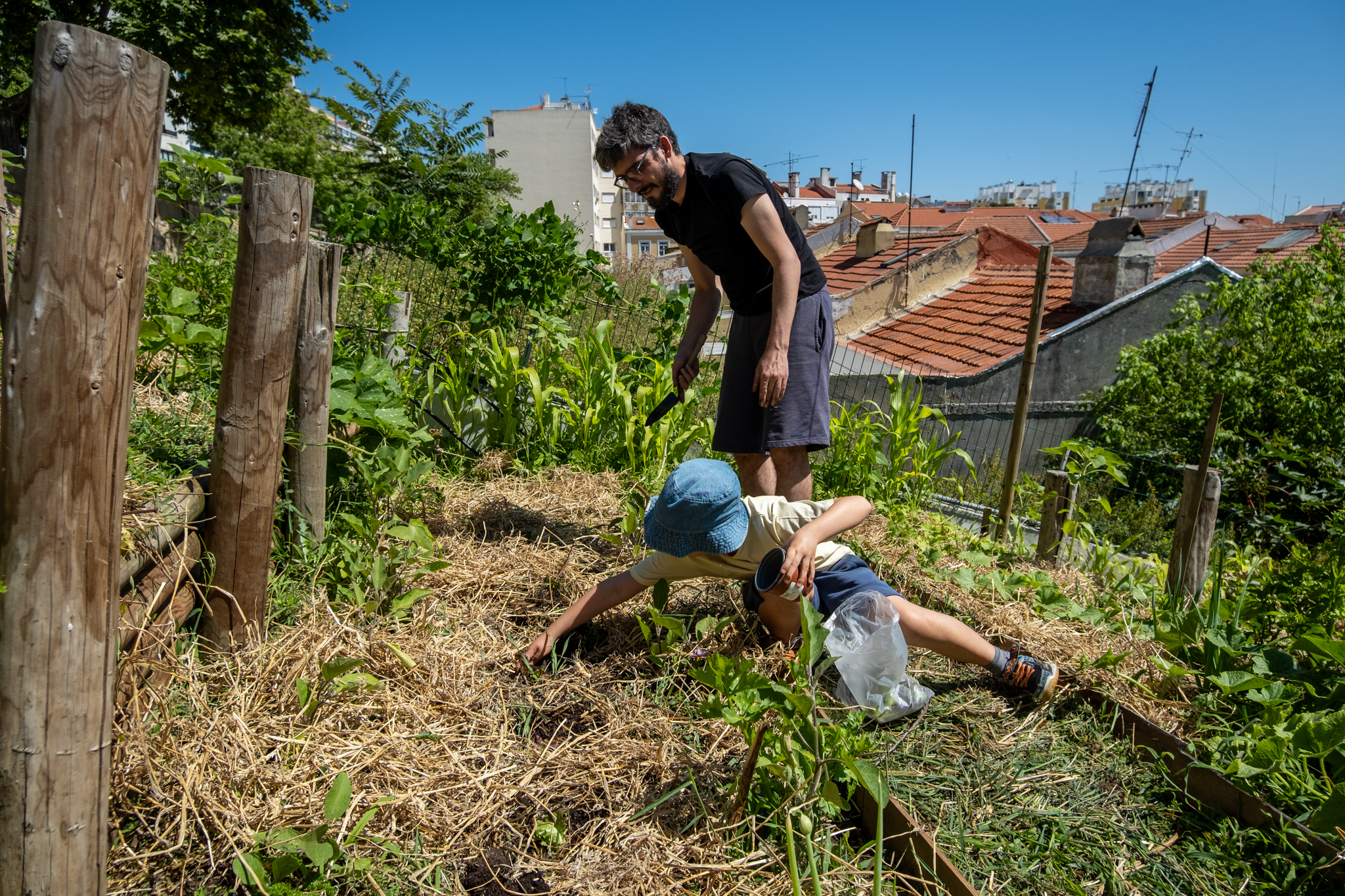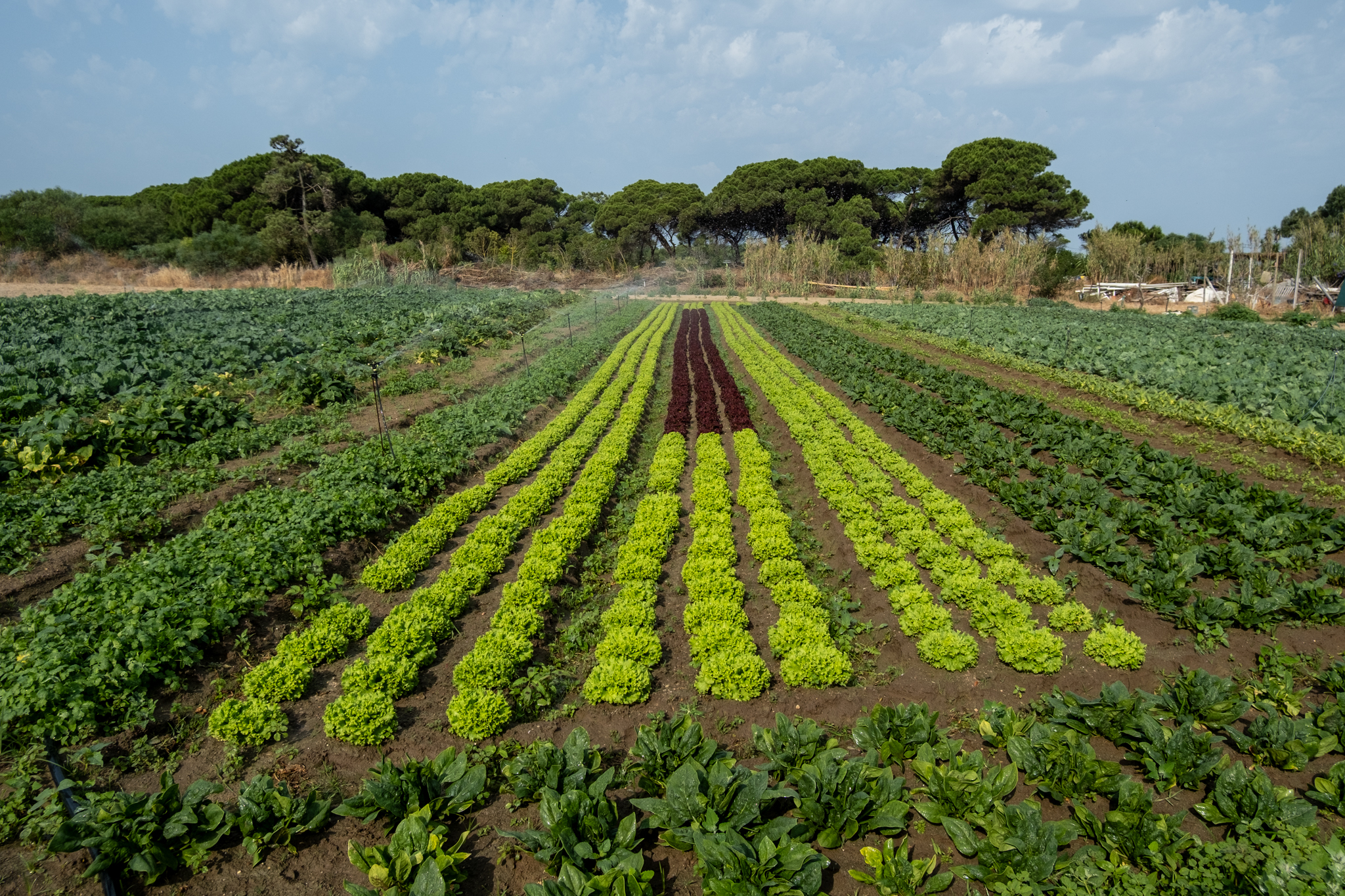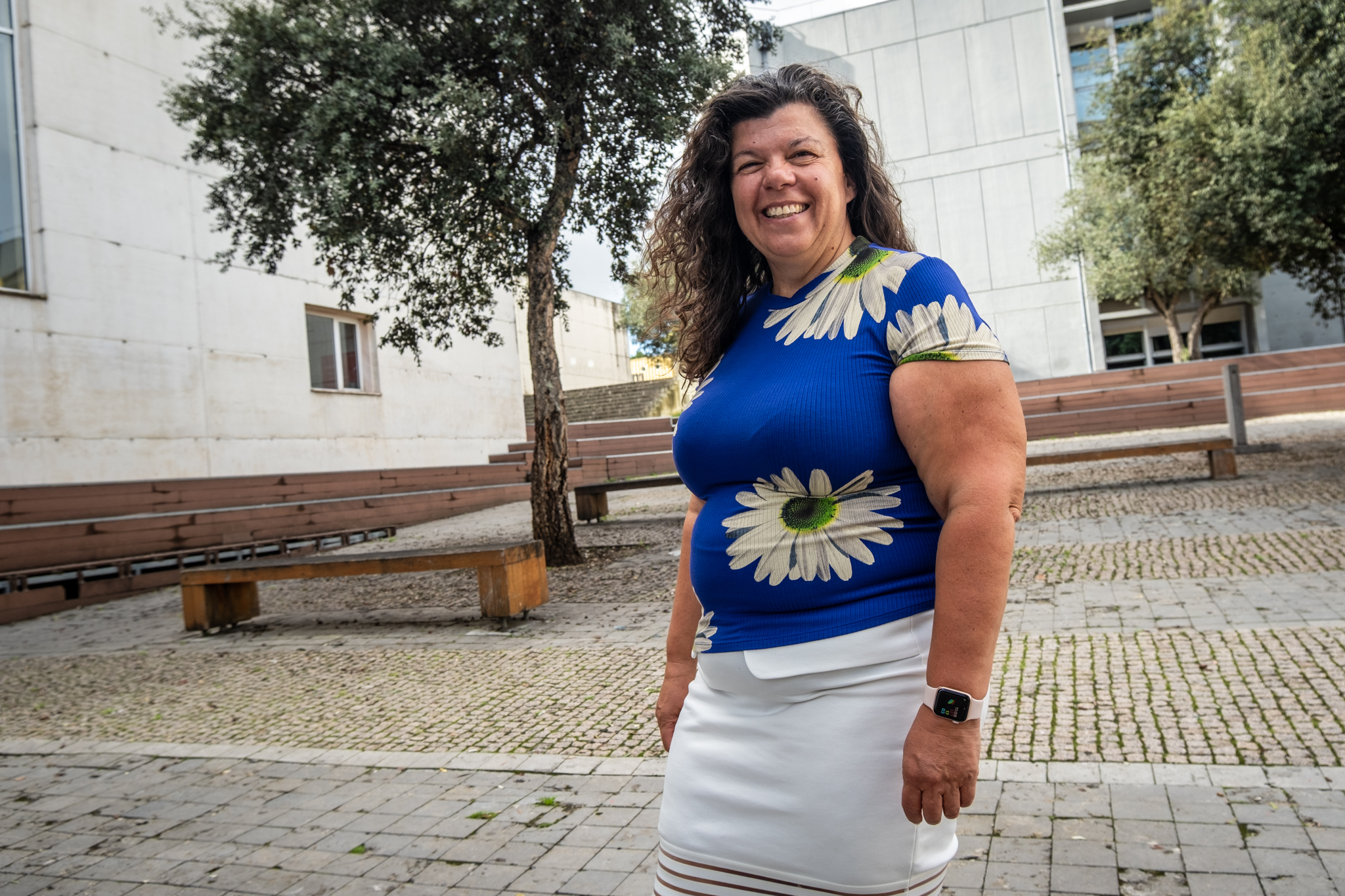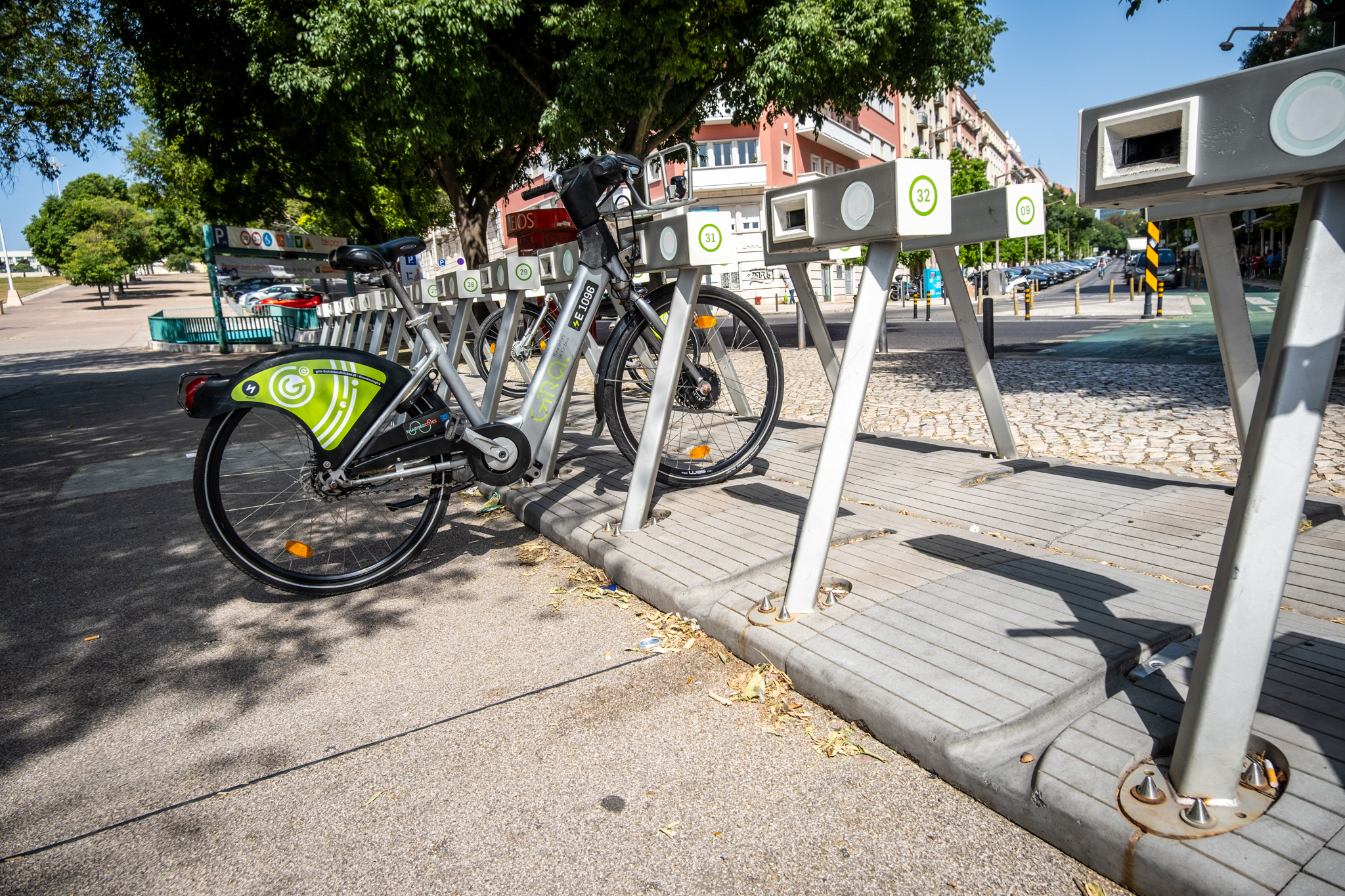The second edition of the Citizens' Council, dedicated to the theme of the "15 minute city", started last Saturday, March 25. After the first discussions, the Council will meet again next Saturday, this time to concretize some ideas and present them to the Mayor and the media.

Putting citizens who do not know each other in the same room to talk about the city and have ideas for the common good is, perhaps, the main objective of Citizens Councilan initiative of the Lisbon City Hall that happens for the second time. For two consecutive Saturdays, a diverse group of 50 people will be discussing the "15 minute city" and working on it with municipal technicians from different areas.
In this second Citizens' Council, there are changes resulting from the lessons learned from the first edition. First of all, the the draw model was different. Instead of an online form for people to sign up on their own, it was decided send about 20 thousand letters to addresses in the 24 parishesfollowing a randomization process. The intention was to reach more people who usually do not have the opportunity or inclination to participate in public debate. Were obtained 800 positive responses to the invitations sent, from which 50 participants and 50 substitutes were drawn - the drawing process was the same as in the first edition and was broadcast online.
The numbers
20,000 invitations sent by letter
800 positive responses to these invitations
50 participants drawn and 50 substitutes
How was this draw made? Each person who received the letter and showed interest to participate was assigned a code (example: 33GLD) which anonymizes their identity by reducing it to a few demographic data; then, with the help of an algorithm and information from the Census, a draw is made from these codes to select a group of participants diverse in age, gender, parish of residence, level of education, and professional situation. Only citizens 16 and older are eligible. This entire selection process was and is done by the association Citizens' Foruman entity independent from the municipality and specialized in the theme of active citizenship. The sending of the 20 thousand letters in a random way was assured by CTT.

Search for the diversity of the city
For Carlos Moedas, the changes in the registration process and the drawing of lots for the 50 participants is what will allow us to bring to the Citizens' Council the "diversity of the city". "We also walked the neighborhoods and the local associations to be able to bring that diversity and to be all different here"said the Mayor, in a short speech welcoming the 50 participants. "We have the diversity that represents the real population of Lisbon, which is what is sometimes missing in politics, because we only have a few represented"He added, referring to the meetings he has with a certain sector or group of people where different interests and desires are not seated.

"But diversity has a problem, as opposed to what would happen if we were all neighbors or all from the same backgrounds"he warned the audience. "At first it's going to be a little bit harder. That's normal. Because we all want the comfort of someone who is similar to us. And you are all different. But always think about this: when you look at someone and you feel that they are looking away or not looking right, think that it's nothing. If you talk to that person, you will see that we are all the same after all. But it will take a little bit of strength and commitment on your side." Among the 50 participants selected and drawn, there are six young people between the ages of 16 and 25, three people over 65, and also six foreigners, "for they are part of our city"said Carlos Moedas.
Have concrete ideas
The second edition of the Citizens' Council kicked off in last Saturday, March 25th. By 9am, the participants started arriving at the City Hall for the usual check-in. Carlos Moedas showed up at 9:30am to greet everyone present and personally welcome them; the welcoming moment followed with a short speech by him and the Councilor for Urbanism, Joana Almeida. This is where the moment open to the media ended and the President also left the Great Hall, where the participants were left alone. According to the program, there followed a moment in which each participant introduced him/herself and then some initial diagnostic conversations about the city of Lisbon in terms of proximity services and equipment. In the afternoon, after a lunch offered by the City Hall, the participants had a question and answer session with professionals and technicians from the City Hall, so they could compare their personal experiences with the concrete realities of the city. At the end of the day, they will have been left with a list of the priority challenges to be solved in the city, and next Saturday, April 1st, they will return to these challenges to find answers and concrete solutions. At the end of that day, they will have solutions to present and discuss with the Mayor.

During these two Saturdays, the 50 citizens, divided in small groups, will count on the almost permanent accompaniment of people who work daily in the City Council's municipal services. And before we move on, allow us a brief interruption to give the following context: a City Hall is divided into two large groups. On one side, we have the Municipal Executive, which is the political body, made up by the mayor, councilors, and their advisors, and which defines the political strategy of the municipality - the path the city must follow. On the other, we have the services, which are divided into various departments and comprise the technicians, the teams of managers, architects, analysts and others who make things happen, according to the path defined by the Executive. Now, in the Citizens' Council, the Executive is not present, but people from the Services, thus avoiding political interference.
No Interference
This accompaniment of citizens by municipal technicians is another difference in relation to the first Council. If in the first edition academics, external experts and entrepreneurs were invited to contribute with their perspectives on the topic (climate change), in this second edition the learning model of the participants is different. The experts are now considered to be the citizens themselves, and their experience of using the city in their daily lives is the main source of information and knowledge. The learning will be done through direct interactions between citizens and municipal services - 12 different areas are represented, ranging from mobility and accessibility to safety, public space, green spaces, culture, education, commerce, health or sports. "One of the things we learned about that first edition is that we called a lot of people from the outside to speak, but we didn't have a lot of people from the house"said Moedas. "In this issue we have workers and workers from the house, those who know about pruning, who are here in the House and who will be here with you to help you get these ideas executed"Moedas explained to the participants. "Don't forget this: of the hardest thing in politics is to have concrete ideas. We all have dream ideas, of what a city could be, but we have to think in concrete what we can do."

"There won't be any interference from me, nor any political interference. They're going to be on their own. They're not going to be conditioned.", reinforced the Mayor, who will only return to the meeting with the Citizens' Council late in the afternoon of next Saturday, the 1st, together with the media, to listen to the proposals to make Lisbon a 15 minutes city. "Think about what you want to do in your neighborhood or in your city, and turn those ideas into something concrete, so that we can carry them out with you in the coming months. If that is the result of this Citizens' Council, then Lisbon is doing something very different." From this Citizens Council will result "three to four ideas" that the municipal executive, together with the services, will seek to accomplish in the city. "And if there is an idea that you guys have for the city that I personally don't like very much, it will be done. I'm not in charge, you are."Moedas assured.
Three to four ideas to implement
The participants in this second edition will be working on the 15-minute city in five major areas: Health, Education, Mobility, Commerce & Services, Leisure (culture, sports, green spaces). Lisbon City Hall will have worked with the team of Carlos Moreno, author of this concept, to prepare the thematic content and the exercises to be carried out with the citizens. "This is a topic that is very dear"commented Moedas. "And it's about turning Lisbon into a city where we have more time to live, instead of sitting in traffic. It's about living our neighborhoods without having to drive around. Cities need more freedom, but we have to find it together. We can't have people arguing against each other."
Joana Almeida, Alderman of Urbanism, presented the program to the participants There's Life In My Neighborhoodin which the municipality is already working to implement proximity measures in the city's neighborhoods, and pointed out that although the slogan "15-minute city" was launched by Moreno, the basic idea had been applied long before in Lisbon. He gave as an example the Alvalade neighborhood, which, in the early twentieth century, was created with an organization in "neighborhood units" - that is, housing areas delimited by main streets for automobile circulation and which had the school as their center. "Back then, it was possible to design 15-minute cities because we had empty territory. Now the challenge is to understand how we can create that proximity in a consolidated territory"Joana Almeida said, mentioning that "a neighborhood where children and vulnerable groups live comfortably is a neighborhood where we all manage to live comfortably".

Awakening people's interest
The introduction of a Citizens' Council in the public and democratic life of Lisbon was an electoral proposal by Carlos Moedas, who will be enthusiastic about this idea of direct involvement of citizens in political decisionsas can be inferred from an interview he gave to the podcast 45 DegreesJosé Maria Pimentel, in October 2020, long before he was listed as a candidate. A survey conducted by the Calouste Gulbenkian Foundation in 2020, cited in CML's report on the first edition of the Citizens' Council (which you can download at the end of this article), reports that 57% of young people over 15 years old consider the current functioning of democracy in Portugal as "average" (28%) or "bad" (29%), 55% feel no or little interest in politics. In what concerns participation, around 95% do not belong to a political party nor to social movements, unions or youth and student associations. At the municipal level, the abstention rate for the 2013, 2017 and 2021 elections exceeded 45%. In Lisbon, almost half the population of the city of Lisbon did not vote in the 2021 municipal elections.
The Citizens' Council can play a role by bringing in people who do not normally participate in your city - whether in elections, movements and associations, or in meetings or public sessions of the City Council and Municipal Assembly - to this dynamic of citizenship and show them a little of the operation of a municipality. Carlos Moedas, at the start of this second edition, depreciated the criticism that participants of the first edition made to the initiative in an article in Público. "I think it's also important that the citizen feels the difficulty of politics" and to execute certain ideas, said the Mayor, who also left, in that same session, a praise for public scrutiny: "Our journalists helped us do better."
In this Público article, members of the first Citizens' Council say they were used to "political marketing" and complain that there was no follow-up to the ideas and proposals presented. If it is consensual that, in general, the execution times of projects in a city are usually long, it is also true that the execution history of proposals resulting from public processes in Lisbon is not the best - for example, in the Participatory Budgeting (PB), there are several overdue and unfinished projects.

All proposals coming out of the Citizens' Council will have to be analyzed internally by the municipality to see if they are feasible. At the same time, a match with eventual projects that the Chamber already had on the table or in a drawer and that, if there is a group of citizens defending this idea, go up in the elevator of priorities. This is what happened in the first edition. For example, the A Garden Around Every Corneran idea developed in that Council, aligns with one of the projects in the program Cooling Down The City and which consists in planting 70 trees at junctions in the Colonias neighborhood, in Arroios. Also, the idea of superstars crosses citizens with a desire expressed in a proposal discussed at a meeting of the municipal executive to close some areas of the city to cars on Sundays. In other words, the Citizens' Council can play a role of creation but also of validation of work that was already underway within the Lisbon City Council or the municipal companies. And it can also serve to improve this work. Ideas that citizens will discuss about the "15-minute city" may become part of the municipal program There's Life In My Neighborhood.
Summary of 1st Citizen's Council ideas
Divided into seven groups, in the first edition, the nearly 50 participants thought about what we have to do for Lisbon to face the climate change.
Housing and Energy Efficiency
- Recover Lisbon's abandoned and CML's vacant housing stock by 2025;
- Improve the energy efficiency of housing, starting with municipal property. Implement central solar heating systems and caulk all windows and doors in new social housing buildings;
- Install reducers on faucets and showerheads in municipal buildings and social housing, and reduce the use of air conditioning and artificial lighting at events;
- Promote literacy in this area of energy efficiency through events in neighborhoods, television campaigns, and through schools.
CML's relationship with the citizens
- Create a Citizen's Ombudsman as a complementary communication channel between the City Council and its citizens;
Transportation and Mobility
- Improve and increase the public transportation network, with the expansion of schedules and circuits, namely at weekends, reinforcement of the neighborhood lines, and enlargement of the lines in the external flows to the city;
- Improve conditions for pedestrians by increasing the number of sidewalks and pedestrian circulation spaces and by improving the livability between sidewalks and bike lanes;
- Establish and meet phased targets by 2050: by 2025, launch a superquarter pilot, coordinate schedules at transport interfaces, ensure loading and unloading schedules, prioritize pedestrian circulation with sidewalk renovation, and regulate scooters and bicycles; by 2034, create bins and parking lots in outlying neighborhoods; by 2041, have a radial light rail transport network; by 2048, significantly reduce the circulation and entry of private motor vehicles in the city and metropolitan area; by 2050, launch a pedestrian day and an integrated sustainable mobility system;
Public Space
- Rescue the public space, train and sensitize people to use this public space, and promote people's stay with urban furniture
- Ensure a garden on every corner, decreasing the impact of heat on the city, increasing shade spaces, and always matching the trees to the different spaces in the city;
- Activate city fountains and water sources and create lakes to increase the city's water resources;
Environmental Education and Behavioral Change
- To promote, mobilize, and raise awareness of everyone's attitude and behavior towards responsible consumption, encouraging recycling and reuse;
- Encourage citizens to have plants and flowers on their balcony and window.
- Reduce CO2 emissions by 15% between 2027 (medium term vision) and 2047 (in a long term vision) through volunteering and social responsibility programs related to the carbon footprint produced by companies.
The Next Steps
From this second Citizens' Council, 10 ambassadors will be elected who, after the two Saturday discussions, will represent the 50 citizens in the relationship with the Lisbon City Council. These ambassadors will participate in meetings with services to discuss the proposals presented, assess their feasibility and support the implementation process. The aim is to continue to work with people to ensure that their proposals have an impact on the life of the city, while at the same time ensuring that the ideas and intentions initially presented are not changed or undermined. At least three meetings are planned, similar to the 2022 editionThe first meeting will take place one to two months after the Council, at which the Chamber presents its evaluation of the proposals, and defines the prioritization of these proposals and how they are aligned with the other projects of the municipality; the second meeting will turn the proposals into concrete projects with contributions from the ambassadors; and the third meeting will take stock of the implementation of the projects, evaluating their impact and results together with the ambassadors.
The Lisbon Citizens' Council follows the practices used in other citizens' assemblies, such as the Irish Citizens Assembly, and the Lisbon City Council was advised by a panel of international experts that includes institutions such as the OECD, the Council of Europe, the Sortition Foundation, the Mission Publique (responsible for the organization of the "Grand Débat" in France) and also national institutions such as the Calouste Gulbenkian Foundation, the Portuguese Catholic University, ISCTE - Lisbon University Institute or the Institute of Social Sciences of the University of Lisbon (ICS-UL). All these entities will help in the autonomy and political independence of the Citizens' Council from the municipality, in particular the executive part.
As pointed out by ICS-UL researchers, who conducted an analysis of the first Council at the request of the Chamber, "the first edition of CCL [Lisbon Citizens' Council] was a remarkable deliberative experience, which, in general, was positively received by the registered citizens. Representing a positive advancement of CML's [Lisbon City Hall] participatory tools, the criticisms pointed out along this path should and can serve to activate a robust learning and improvement process for future editions of CCL". The report can be read here below.


